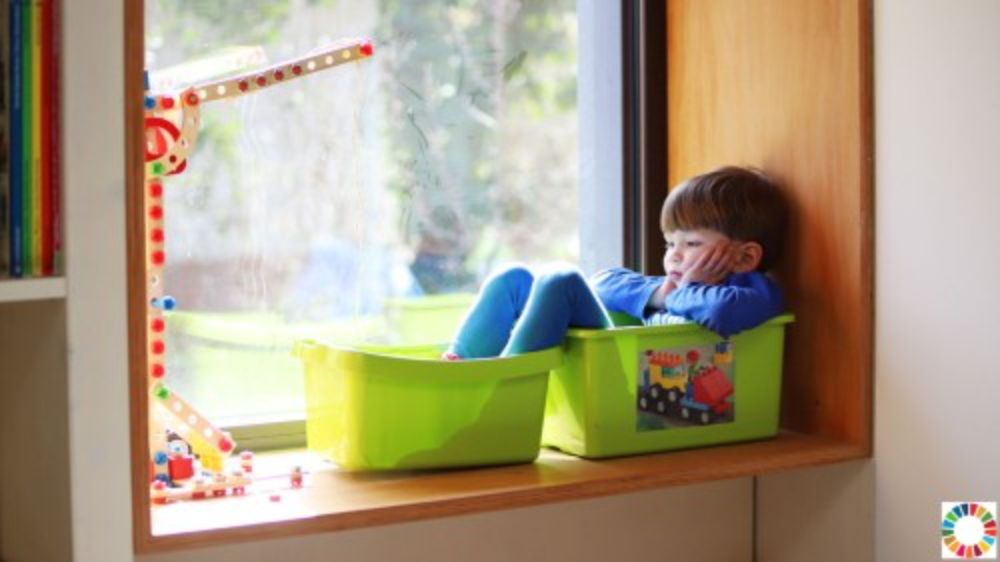So yes, money helps make life a little less boring.
Since boredom undermines productivity, decision-making, and mental health, our findings point at boredom as an overlooked component of the psychological footprint of poverty.
12.09.2025 11:08 — 👍 0 🔁 0 💬 0 📌 0
We don’t find big differences between blue- and white-collar workers.
But for people relying on unemployment benefits or pensions, the link between household income and boredom is stronger.
12.09.2025 11:08 — 👍 0 🔁 0 💬 1 📌 0

Using data from over 60,000 individuals across 30 countries, we show that low-income individuals experience boredom more often.
Boredom is also more “toxic” among low-income individuals (more strongly linked to feelings of sadness, anxiety and loneliness).
12.09.2025 11:08 — 👍 0 🔁 0 💬 1 📌 0

We’ve studied the relationship between income and happiness for decades.
But what about income and boredom?
Our paper is finally out in the Journal of Economic Psychology!
www.sciencedirect.com/science/arti...
12.09.2025 11:08 — 👍 0 🔁 0 💬 1 📌 0


Research by @sergiopirla.bsky.social et al (N=60k across 30 countries) suggests a robust negative association between daily experiences of boredom and income; in lower income individuals, boredom is also more closely linked with sadness, worry and anxiety:
buff.ly/S1ez2xo
07.09.2025 08:18 — 👍 7 🔁 4 💬 0 📌 0

Although our boredom manipulation did not directly affect participants’ tendency to transfer or steal money from another player, it did reduce their sense of agency — and this reduced agency, in turn, was linked to both increased prosocial and antisocial behavior.
01.09.2025 11:29 — 👍 0 🔁 0 💬 0 📌 0
Sobre aburrimiento y toma de decisiones 👇👇
29.07.2025 14:51 — 👍 1 🔁 0 💬 0 📌 0

The misperception of carbon footprints of the rich and the poor
Not everyone contributes to climate change to the same extent. While huge inequalities exist in consumption and associated greenhouse gas emissions, w…
95% of people underestimate the carbon footprint of the top 1%. When presented with the actual figures, people increase their support for carbon taxes.
Our new paper (with Laila Nockur and @stepf.bsky.social) is out in the Journal of Environmental Psychology.
www.sciencedirect.com/science/arti...
03.03.2025 10:48 — 👍 16 🔁 7 💬 0 📌 1
Hi Stephanie, would love to be added! Thanks!
20.11.2024 12:03 — 👍 1 🔁 0 💬 1 📌 0
He vuelto a actualizar el starter pack de economistas de habla hispana. Ya somos mas de 90. Ideal si acabas de aterrizar o si piensas que Bluesky todavia no ha despegado.
Si quieres añadir tu nombre, no tienes mas que decirlo.
go.bsky.app/8tkeVED
07.11.2024 21:26 — 👍 16 🔁 14 💬 6 📌 0

New WP out (with Daniel Navarro-Martinez)!
We present a guide of field environments and behaviors that social preference games are expected to generalize to, using insights from experimental economists.
Full paper:
papers.ssrn.com/sol3/papers....
19.11.2024 12:27 — 👍 0 🔁 0 💬 0 📌 0
I created a starter pack for Boredom Research! Please share and let me know if you would like to be added.
go.bsky.app/LhdAdzG
15.11.2024 19:21 — 👍 5 🔁 4 💬 1 📌 0

The dynamics of boredom
This Collection aims to advance our theoretical understanding of boredom, improve the methods used to study boredom, and consider practical applications for ...
📢 Call for Papers: Special Issue on Boredom! 📢
Boredom signals unsatisfactory interactions with our inner & outer worlds. For HSSComms, @corimartarelli.bsky.social & I are editing a collection exploring it through diverse lenses & methods 🤩
➡️ www.nature.com/collections/...
pls share liberally 🙏
15.11.2024 14:51 — 👍 3 🔁 10 💬 0 📌 0
PhD candidate in Economics at @UCL. Interested in micro, labor markets and development. From Chile.
https://www.sebastian-espinoza-rojas.com/
Yale-trained economist thinking about labor, organizational, and personnel economics. RTs, likes, or interactions =/= endorsements.
https://soumitrashukla.github.io/
Economist at ZBW and University of Hamburg. Co-editor @jcre.bsky.social .
Private account, sometimes more, sometimes less about my job. Views are my own.
Pronouns: she/her. 🏳️🌈
development & environmental economist. energy access, climate policy, replication & meta-science. RWI & I4R. #FirstGen bit.ly/40e2aQj
PhD Student at FU Berlin | Economics of Science; Public Economics; Reproducibility & Replicability
lukasfink.eu
Human Motor Control and Mental Fatigue Researcher | Biomedical Engineer | PhD Scholar at Indian Institute of Technology Bombay, India
Professor, Researcher, Behavioral Scientist.
Pompeu Fabra University, Barcelona School of Economics, Barcelona School of Management.
Psicólogo. Profesor de universidad. Según algunos, 'vendedor de humo'.
Development economist. PhD candidate at George Washington University. World Bank consultant working on poverty and climate change. Based in Australia. Views are my own.
A Nature Portfolio journal bringing you research and commentary on all aspects of human behaviour.
https://www.nature.com/nathumbehav/
All things boredom. Which essentially means everything else too.
Associate Professor of Economics, University of Wisconsin-Milwaukee. Energy, Innovation, Growth, Environment, Patents. Basque nomad.
The Consensus Project bridges research and practice to help teams, organizations, and networks—across sectors—navigate the complexity of collaboration.
Professor of Economics University of Glasgow, CEPR, IZA and CesIfo. Behavioural, Experimental Economics . Mental Health. Website: https://sites.google.com/view/eugenioproto-research/home
Instituto Complutense de Análisis Económico.
@ICAE.bsky.social (@ICAE_UCM on X) is a research center at @unicomplutense.bsky.social .
Seminar link: https://meet.google.com/gnb-myzc-zve . Web:
https://www.ucm.es/icae/
Licenciada en Matemáticas, Doctora en Economía. Catedrática de la Universidad de Alicante ( @DepartamentoFAE ). La Ciencia es mi motor.
https://cvnet.cpd.ua.es/curriculum-breve/es/bevia-baeza-carmen/55994
Research and insights from the Department of Economics at City St George’s, a distinguished member of the University of London.
https://www.citystgeorges.ac.uk/about/schools/policy-global-affairs/economics#accordion576967-header576972
El Departamento de Fundamentos de Análisis Económico de la
@UA_Universidad es un centro orientado a la investigación en Economía.
Postdoctoral Researcher at University of Wuerzburg | PhD from DICE @dice-hhu.bsky.social @hhu.bsky.social | chess player (WFM) | 🇪🇺 | https://www.alisa-frey.de










